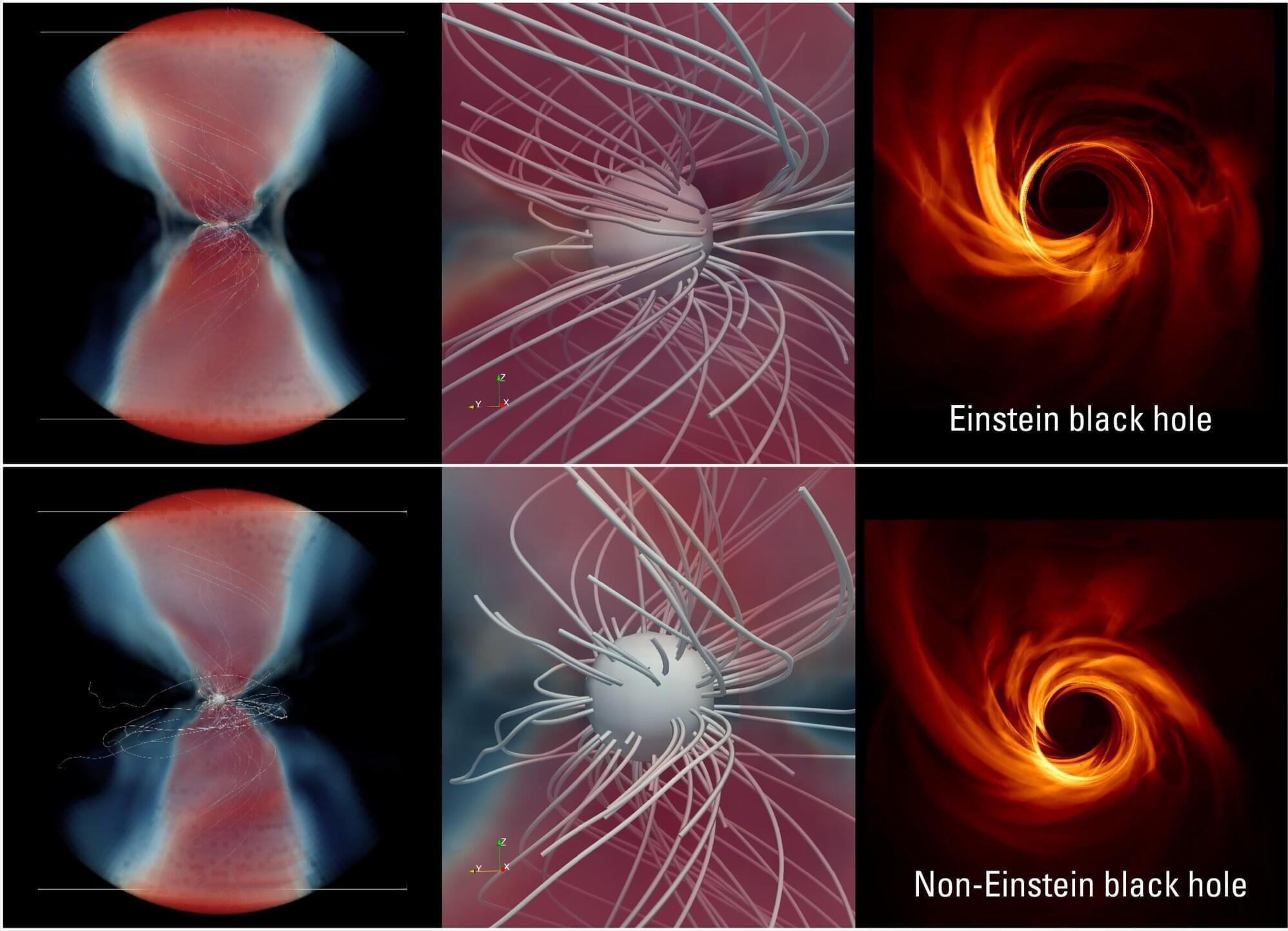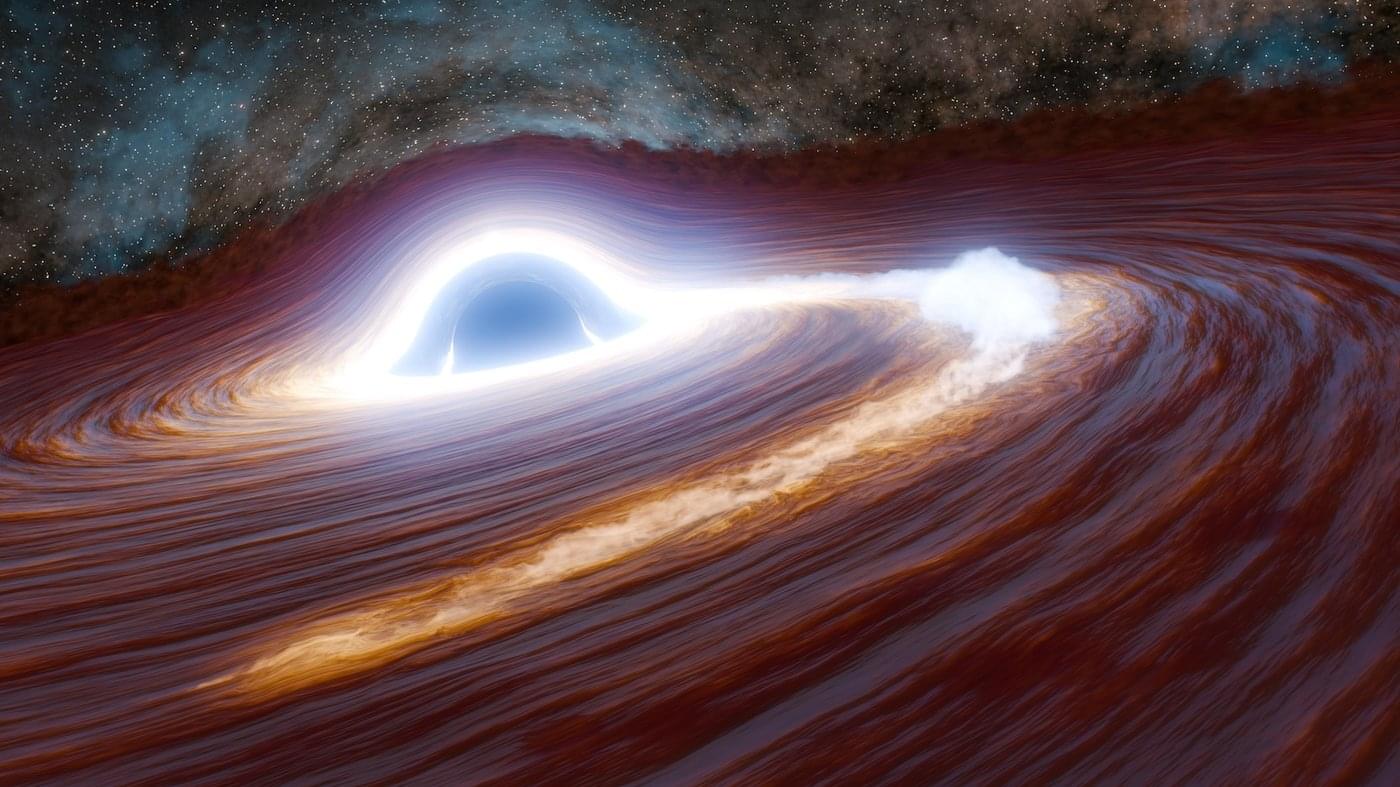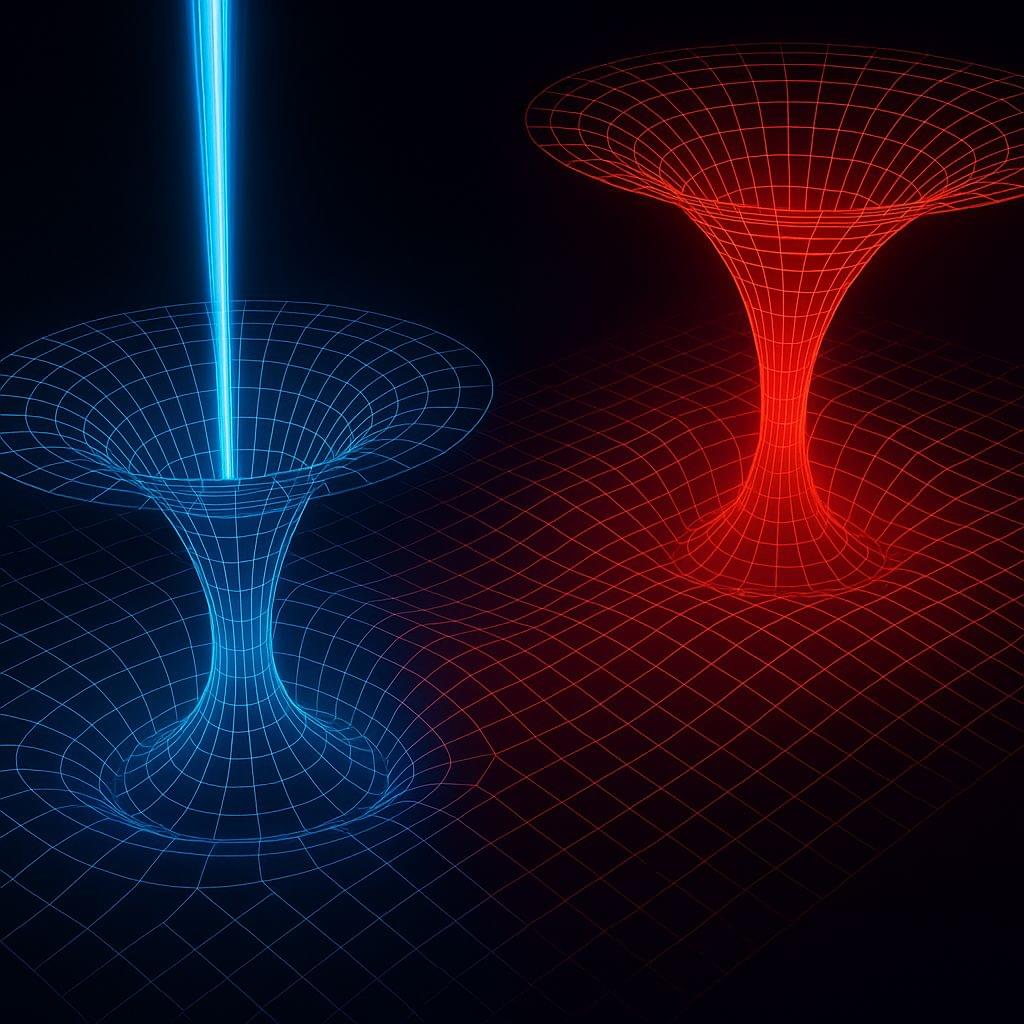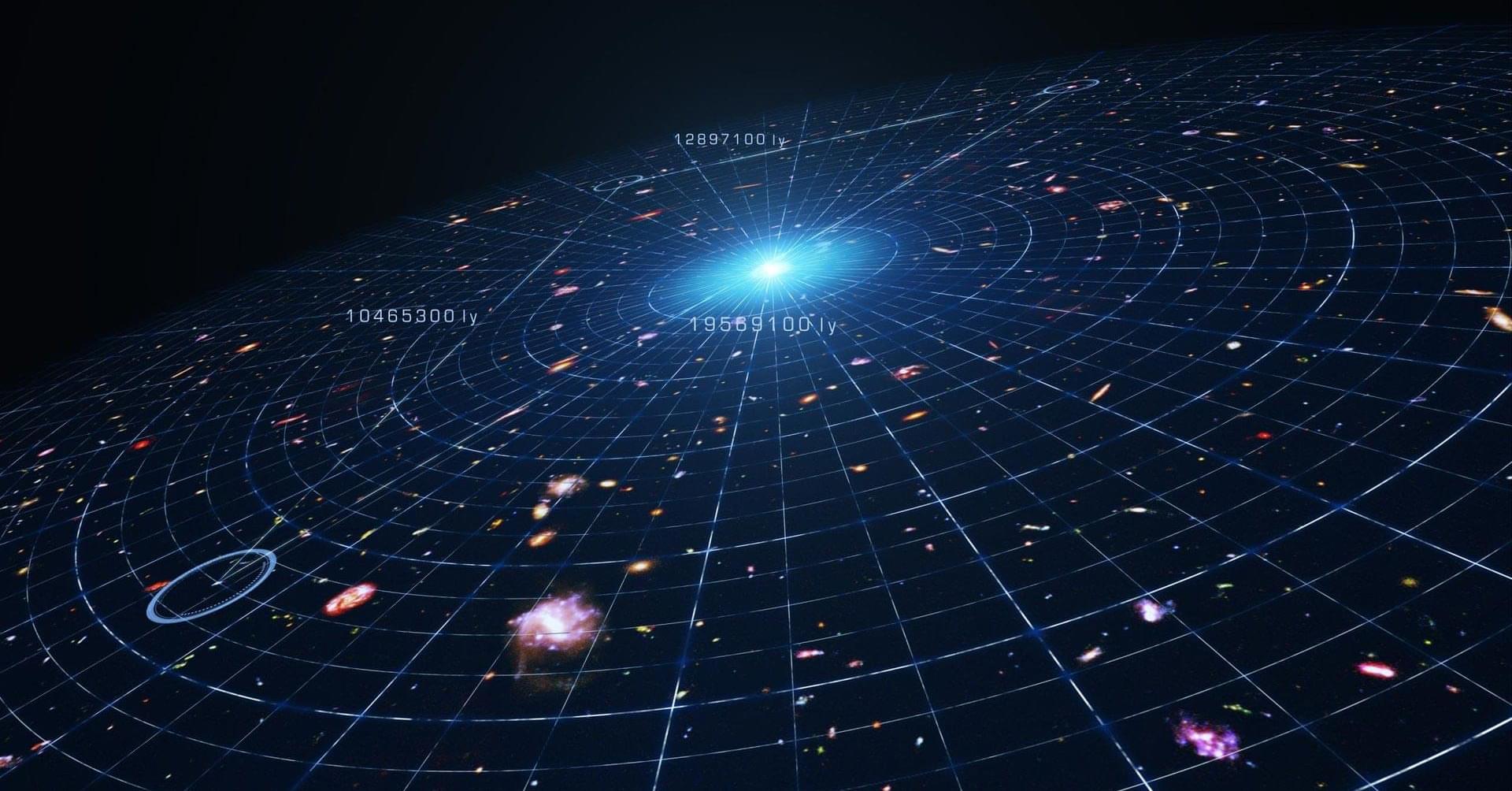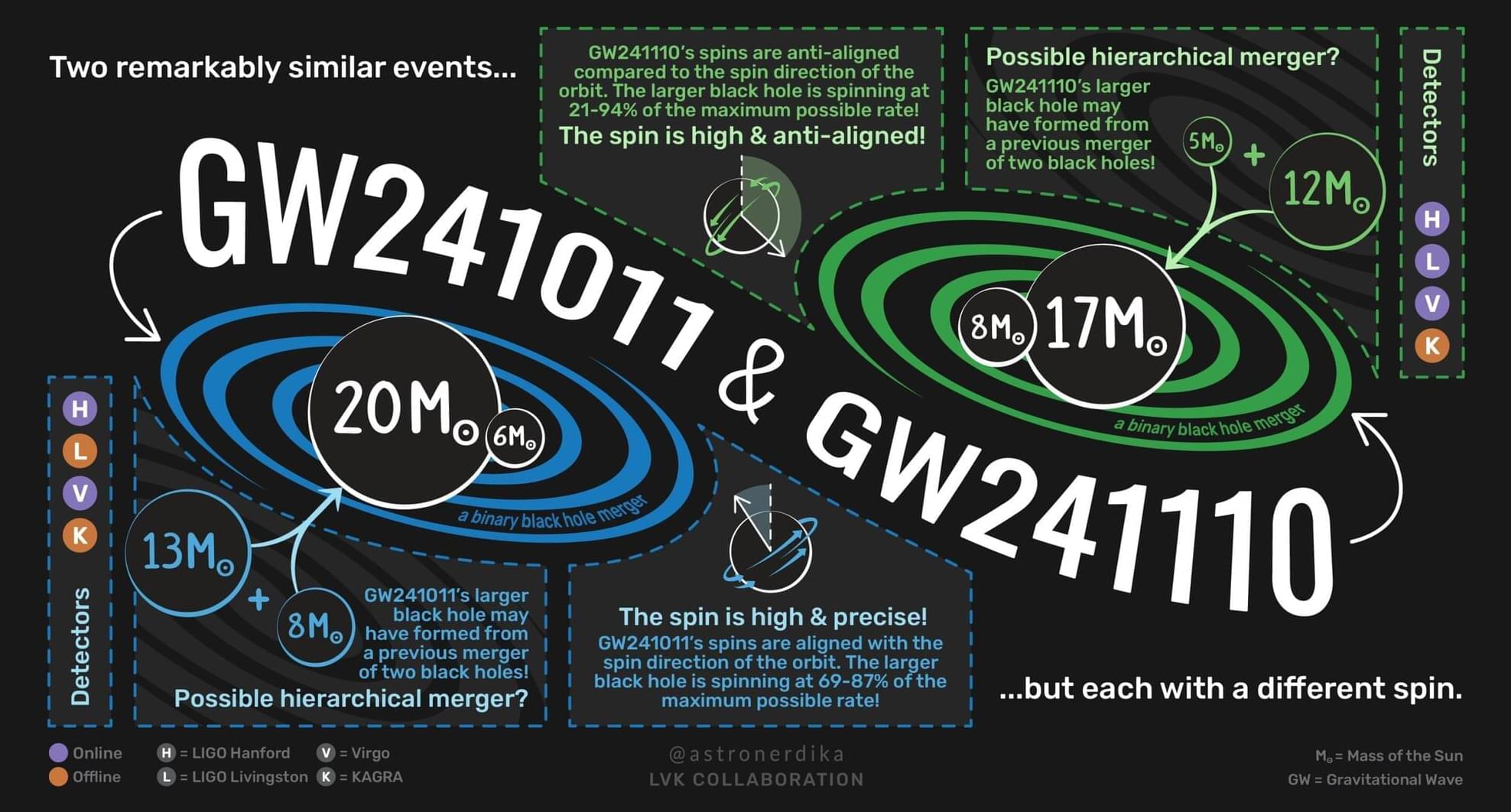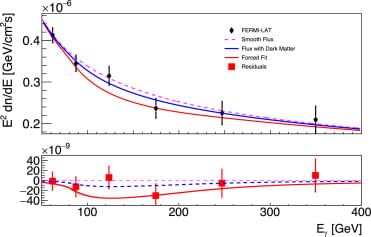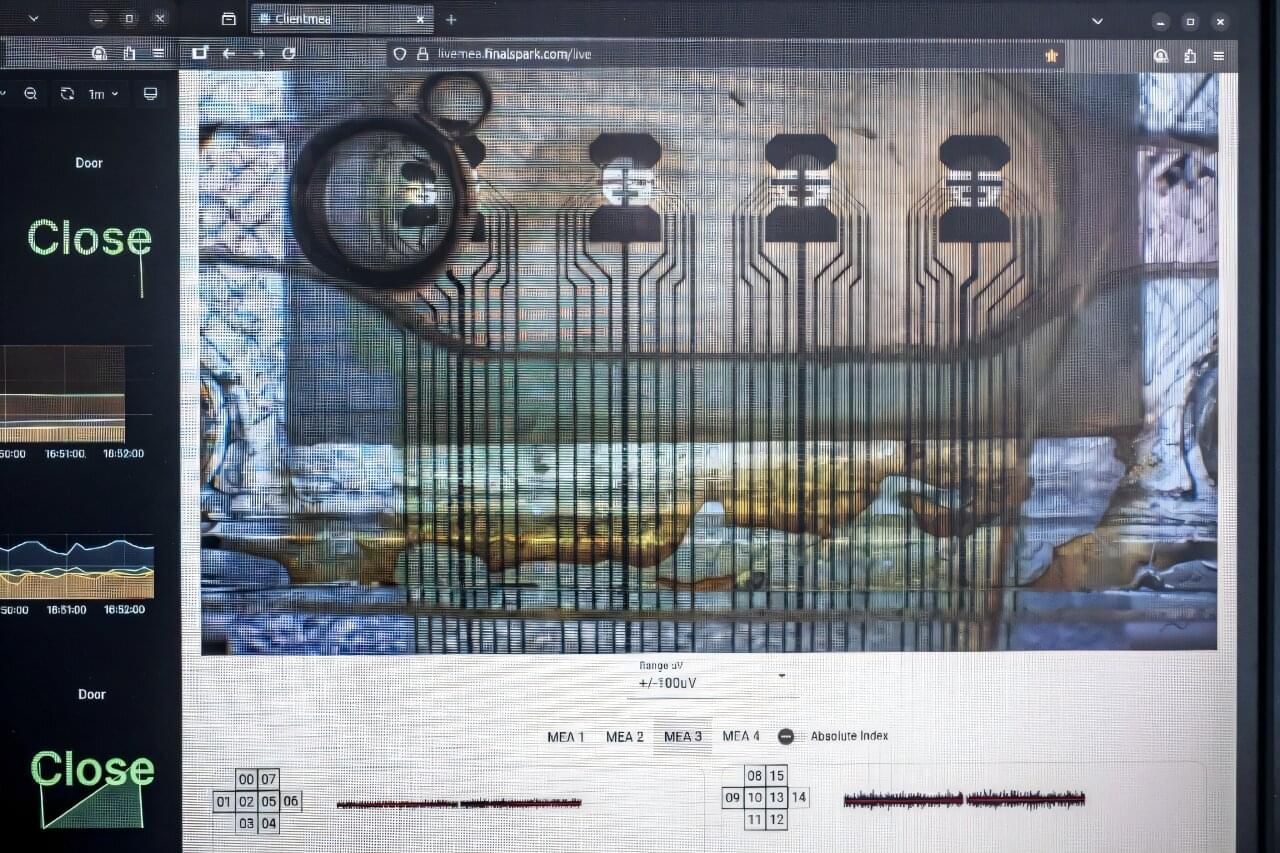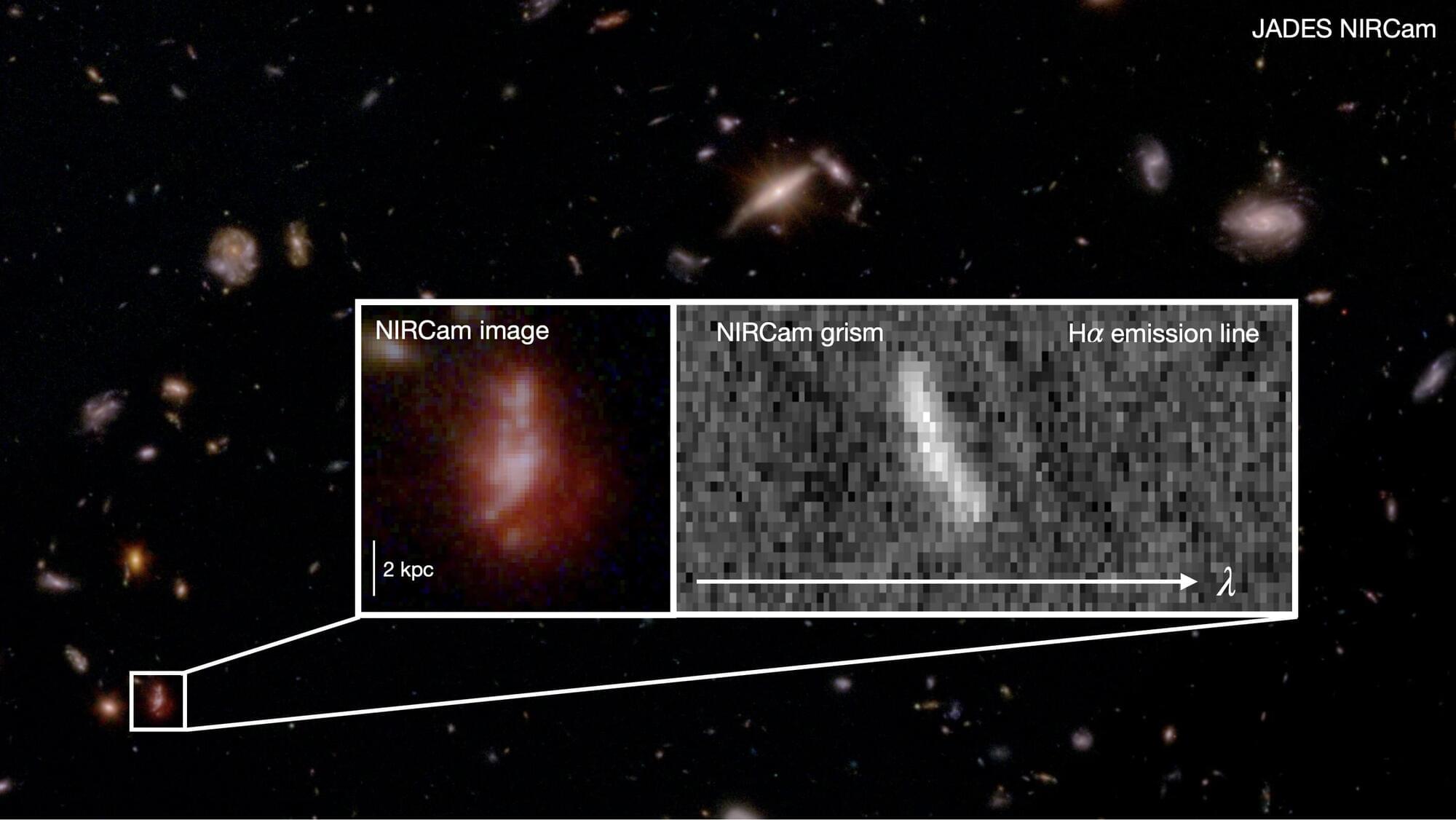Black holes are considered cosmic gluttons, from which not even light can escape. That is also why the images of black holes at the center of the galaxy M87 and our Milky Way, published a few years ago by the Event Horizon Telescope (EHT) collaboration, broke new ground.
“What you see on these images is not the black hole itself, but rather the hot matter in its immediate vicinity,” explains Prof. Luciano Rezzolla, who, along with his team at Goethe University Frankfurt, played a key role in the findings.
“As long as the matter is still rotating outside the event horizon —before being inevitably pulled in—it can emit final signals of light that we can, in principle, detect.”
